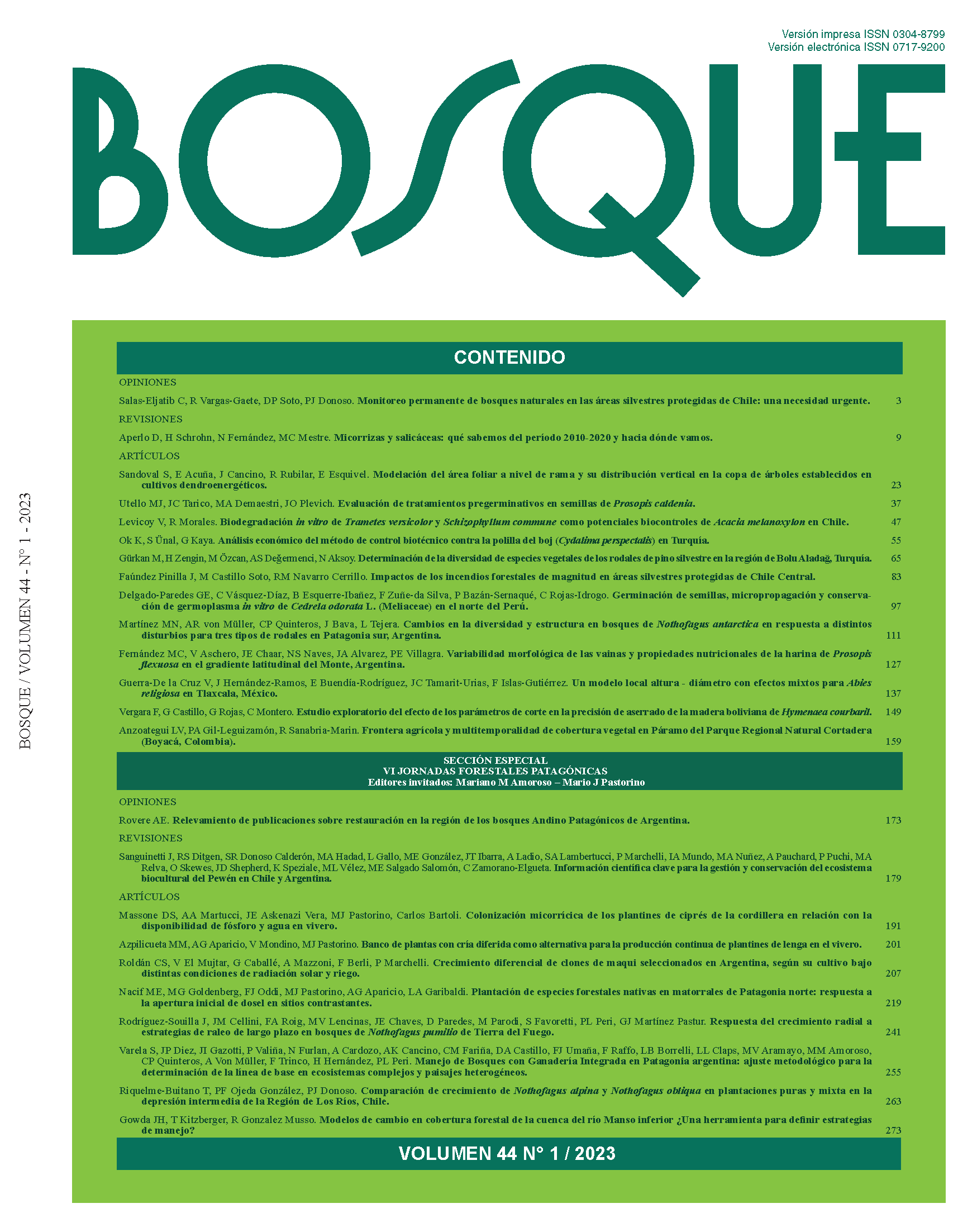In vitro seed germination, micropropagation and germplasm conservation of Cedrela odorata (Meliaceae) in northern Peru
Main Article Content
Abstract
Indiscriminate deforestation is one of the anthropic activities that most impacts global biodiversity. Its immediate effects mainly reach vulnerable species with high commercial value, such as Cedrela odorata, so the development of biotechnological studies is a crucial element for the genetic conservation of its populations. In this context, this work aimed to analyze the seed germination, micropropagation, and germplasm conservation of C. odorata in one of the most arid regions in northern Peru. Seed germination reached 76.6 % development, with germination time between 9 and 12 days. Likewise, micropropagation produced seedlings with stem tips up to 5.4 cm in height, 12 nodes, and 83 % rooting. Finally, the conservation of germplasm resulted in individuals that reached up to 12 cm in height, 19 nodes, and presented an optimal root system. The positive results regarding seed germination, micropropagation, and germplasm conservation of C. odorata in northern Peru could offer new approaches to the development and genetic conservation of its populations, and provide a more efficient alternative for the management and local conservation of the species.

